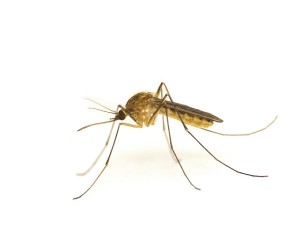 PLYMOUTH – The Massachusetts Department of Public Health will conduct a second round of aerial spraying for mosquitos in Plymouth and Bristol counties for several days starting today.
PLYMOUTH – The Massachusetts Department of Public Health will conduct a second round of aerial spraying for mosquitos in Plymouth and Bristol counties for several days starting today.
So far this year, 37 communities in Massachusetts have been found by the DPH to be at either critical or high risk for the Eastern Equine Encephalitis (EEE) virus.
Earlier this month, mosquitoes in Bourne and Falmouth were found to have EEE, and the first human case of EEE in the state since 2013 was found in man over the age of 60 in Plymouth County.
Health officials said that EEE is a rare but serious and potentially fatal disease that can affect people of all ages.
“While aerial spraying is an important tool to help us reduce the public health risk of EEE, it’s critically important that everyone in high risk areas continue to take personal precautions against mosquito bites,” said Public Health Commissioner Monica Bharel.
“These steps include using EPA-approved bug spray, wearing long sleeves and pants to cover exposed skin, and cancelling outdoor activities which take place during the hours from dusk to dawn when mosquito activity is at its highest.”
The pesticide used is called Anvil 10+10, a product extensively tested and used in both ground-level and aerial spraying in the U.S. to control mosquitoes.
Anvil 10+10 contains two ingredients: Sumithrin and Piperonyl butoxid.
Sumithrin is an ingredient similar to the natural components of the chrysanthemum flower which is also found in other pesticide products used indoors, in pet shampoos, and tick control treatments.
Sumithrin is rapidly inactivated and decomposes with exposure to light and air, with a half-life of less than one day in the air and on plants.
In soil, it degrades rapidly. Sumithrin has proven to be extremely effective in killing mosquitoes worldwide for over 20 years.
Piperonyl butoxide serves to increase the ability of Sumithrin to kill mosquitoes.
There are no health risks expected during or after spraying; and health officials add that there is no evidence that aerial spraying will exacerbate certain health conditions such as asthma or chemical sensitivity.
No special precautions are recommended; however the department said that residents can reduce exposure by staying indoors during spraying.
They add that aerial spraying is not expected to have any impacts on surface water or drinking water.
For the most updated information on EEE risk and aerial spraying, contact the DPH Division of Epidemiology at (617) 983-6800 or visit the DPH website at www.mass.gov/guides/aerial-mosquito-control-summer-2019.
For updated risk levels, mosquito results, maps and incidence of positive mosquito samples, visit www.mass.gov/dph/mosquito.
























